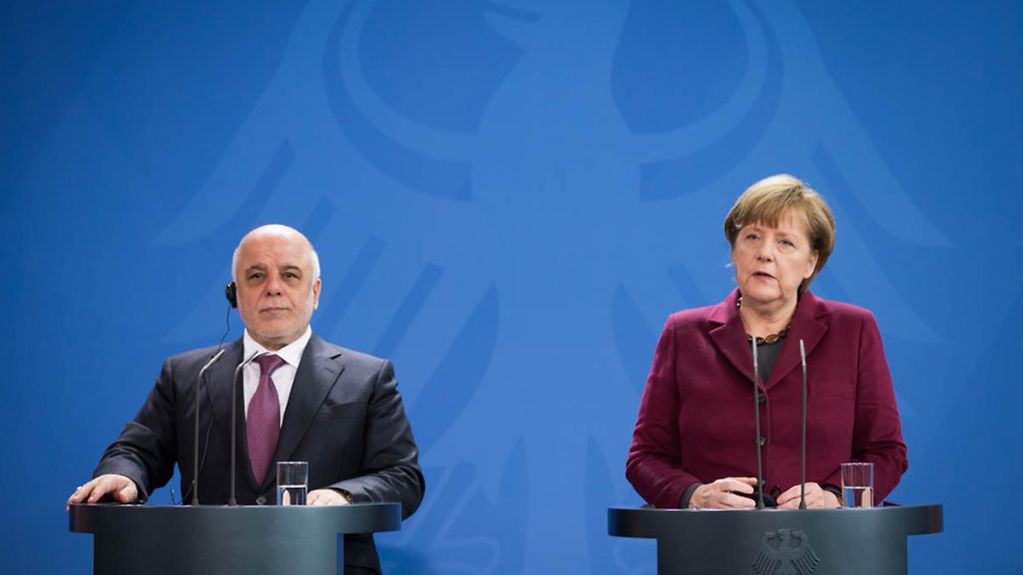Rebuilding infrastructure
Germany is to extend a 500 million euro loan to Iraq to help revive the country’s economy and improve its infrastructure. "The challenges facing Iraq’s government are great," said Chancellor Angela Merkel during the visit of Prime Minister Haider al-Abadi.
3 min reading time

The loan is to help give people in Iraq hope of a better life, says Chancellor
Photo: Bundesregierung/Kugler
Chancellor Angela Merkel pointed to the security and economic challenges in Iraq. The low oil price is a major factor, she said. Germany aims to do all it can to enable Iraq to stabilise the situation.
The German government supports Iraq’s efforts to revive its economy, declared the Chancellor. One element is to encourage infrastructure projects, especially in towns now liberated from the terrorist organisation IS. The measures that can be implemented with the new loan are to give the people in Iraq hope of a better life.
There are no ties attached to the 500 million euro loan to Iraq, which means that the Iraqi government can use the funds in line with its own priorities.
International alliance against IS
For Iraq the fight against the so-called IS is one key element, said Angela Merkel. Germany is already supporting training for the Kurdish Peshmerga. The possibility of providing similar support for the Iraqi army as a whole was also discussed, reported the Chancellor.
Global terrorism calls for a coordinated global response from the international community. An anti-IS alliance that embraces 64 partners including the EU is coordinating the fight against IS. The alliance is pursuing:
- Military action
- Activities to block IS’s financial flows
- Activities to end the influx of foreign fighters
- Steps to stabilise liberated areas.
Germany has assumed a leading role in stabilisation efforts and heads the relevant working group.
As part of its international commitments as a member of the anti-IS alliance, Germany is also providing military inputs to the fight against the terrorist organisation IS. In December 2015 the German Bundestag approved a mandate for the Bundeswehr to be deployed in the fight against the terrorist organisation IS.
Up to 1,200 German troops can now be deployed to support the international alliance in the fight against IS. The mandate is to run until 31 December 2016. The overarching objective is still to achieve a political solution to the conflict.
Support for internally displaced persons
At the press conference the Chancellor also pointed to the 2.5 to 3 million internally displaced persons in Iraq. Germany’s development cooperation should focus to a greater extent on schools, she said. She welcomed the fact that the people in Iraq once again have more trust in the Iraqi army and police force.
Assistance for Syria’s neighbours
At the "Supporting Syria and the Region" conference, Germany pledged 1.2 billion euros: about one billion euros for the humanitarian aid programmes of the United Nations. Of this total, 570 million euros are earmarked for the World Food Programme.
In addition, the German government is to contribute 200 million euros to the "Partnership for Prospects" programme, which is to help generate employment opportunities for refugees on the ground. For 2017 and 2018 another 1.1 million euros are to be provided. The aim is to ensure that the funding of humanitarian aid is assured.
On 4 February, the "Supporting Syria and the Region" conference was held in London. It aimed to identify common solutions to the refugee crisis in Syria. It was jointly hosted by Germany, the United Kingdom, Norway, Kuwait and the United Nations.